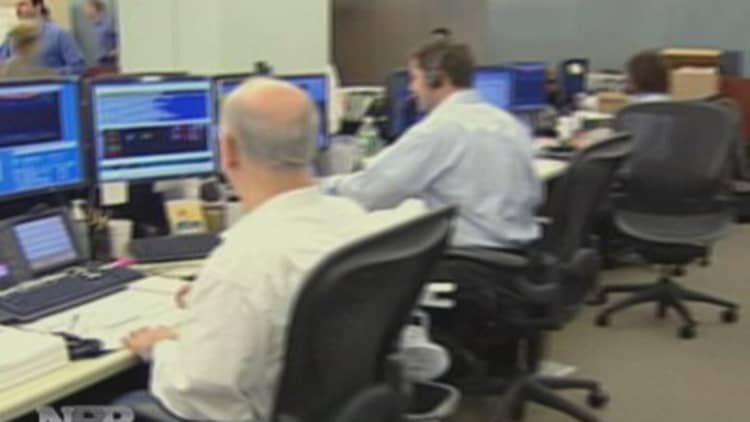The flurry of recent M&A deals in Silicon Valley, while attention-grabbing, is being seen by some entrepreneurs and venture capital investors as a sign portending trouble.
"There is so much money chasing early stage deals that bad news is around the corner," said Jeff Clavier, managing partner at SoftTech VC—though he expects the fallout to be limited to wealthy people and funds, at least at first.
Patrick Freuler, a former private equity investor turned CEO of start-up Audicus.com in New York City, agrees. "The danger is more when these valuations become the norm across the board and not just a subset of the tech world, and the next couple of months will show if we're headed in that direction," he said.
Whether or not the rest of the world heads in that direction, M&A in the tech sector has been on a tear.
According to Thomson Reuters, Facebook's $2 billion Oculus acquisition pushes tech M&A to its highest annual start since 2000—$70.1 billion during the first quarter in 2014, which is up a whopping 101 percent from the same period last year. (Facebook's eye-popping $19 billion purchase of What's App is the biggest tech deal so far this year.)
Not everyone thinks the buying frenzy is necessarily bad. Kulveer Taggar, CEO of Agent, a mobile app start-up, says massive start-up purchases by Google,Facebook and others are an indication that big tech knows how it needs to stay competitive—and buying start-ups can help achieve that.
"The big guys realize that new, multibillion-dollar markets can emerge and be won in the space of a few years. So they have to be quick, and very strategic with what they buy. A key acquisition may save them billions," said Taggar.

But the growth in tech M&A may be more of what professor Brett Gordon at the Columbia Business School calls, a "life cycle effect"—meaning these former start-ups have grown-up and have money to spend because of their high stock prices.
"If you're not exactly sure about 'the next big thing'—and you have a few billion dollars to spare, like Google and Facebook—might as well buy a few medium-sized things. Then wait and see," said Gordon.
The risks are not just for investors. As risky as it may be for Facebook and other big players to acquire premature start-ups that are still young, there are huge risks for the start-up itself, said Aaref Hilaly, partner at Sequoia Capital.
"The rise in tech M&A is healthy for the entire ecosystem, but the only thing worrisome would be for the businesses that exit prematurely. If a company sells too early that would be a shame," Hilaly said.
Many times start-ups with very promising businesses sell too early, and risk getting lost in a larger company and not being utilized effectively, Hilaly said.
YouTube, VMWare, and PayPal are good examples of acquisitions that worked. "These acquisitions dramatically transformed the business of their acquirers," Hilaly said.
Finally, wide-eyed start-ups should not be seduced into believing that billion-dollar deals happen every day in Silicon Valley.
"I do worry that such mergers and acquisitions set unrealistic expectations for some entrepreneurs that an acquisition is the easy way to riches," says Shaherose Charania, CEO of media firm Women 2.0. Huge payouts are rare and are more akin to "winning the lottery," Charania said.
Still, the true litmus test of a bubble—when mom-and-pop investors jump in—hasn't quite been hit yet.
"My bubble test tends to focus on the activity of retail investors, whether they pour their savings in unproven stock on a very speculative basis. I don't think we have seen that yet," said SoftTech's Clavier.




